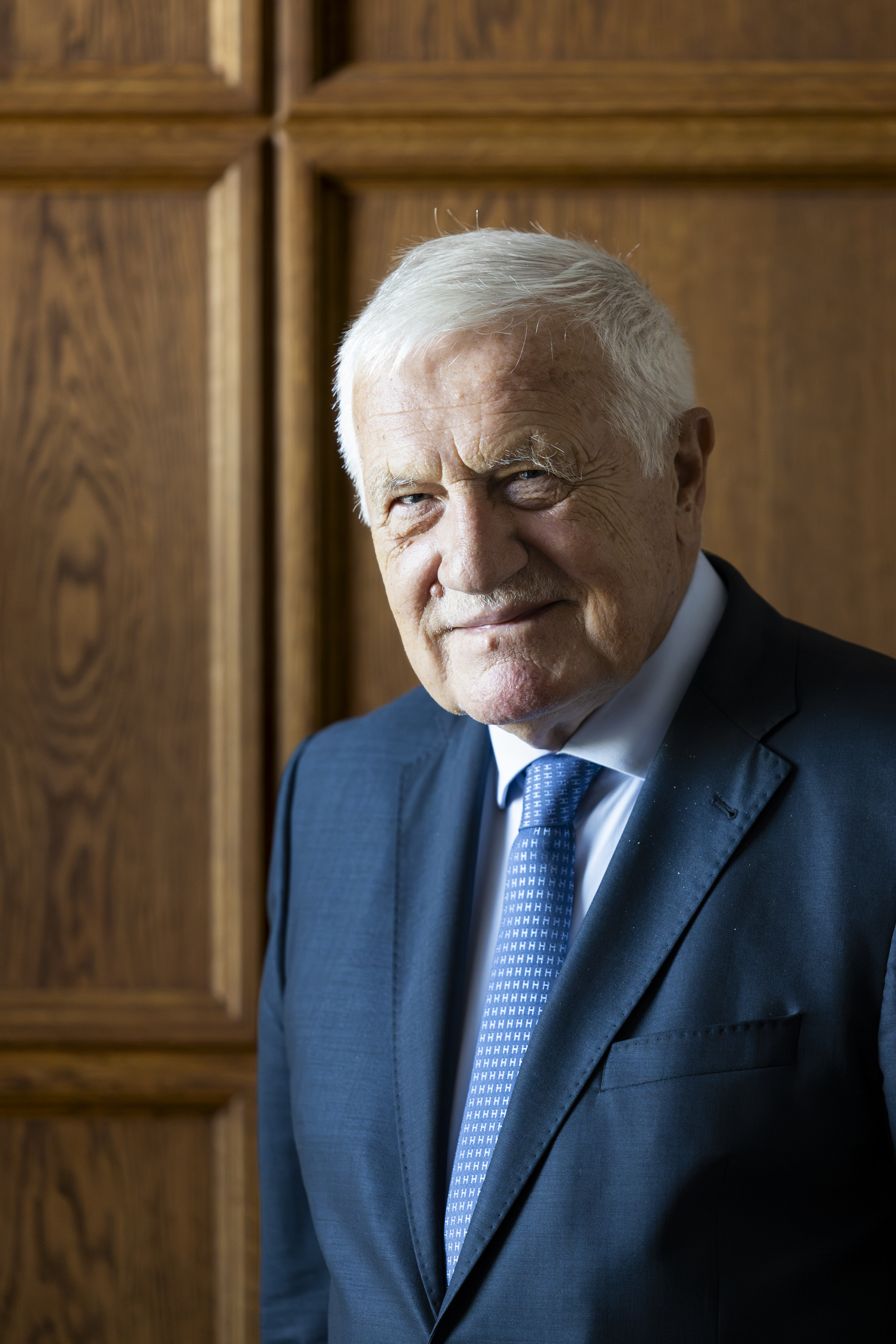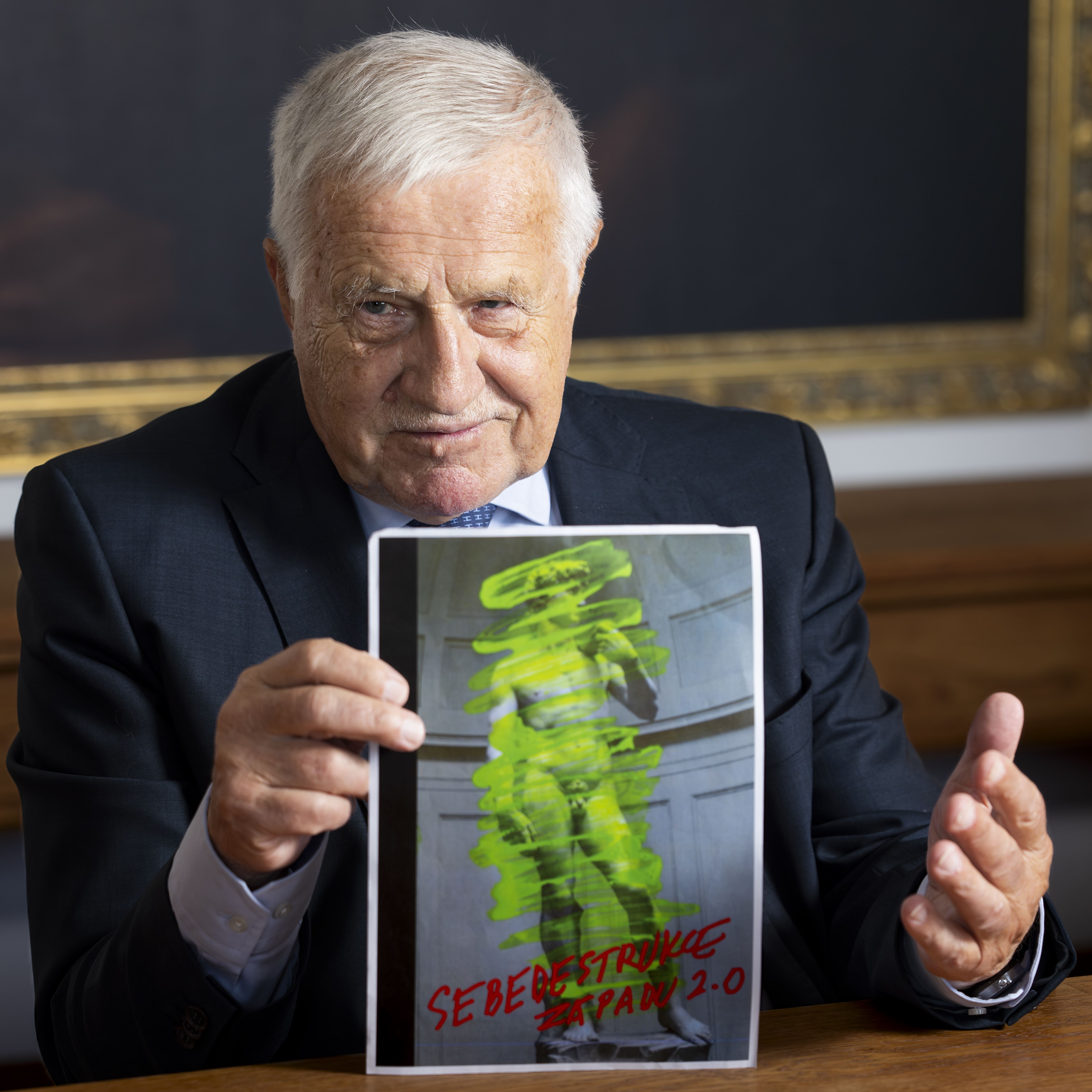
- The East-West divide is a very topical issue today. The Hungarian government says connectivity and cooperation with China are in our common interest. Do you agree with this approach?
- After the regime change, I was the first Czech leader to visit China, in order to re-establish relations, not only economic relations. This was in the first half of the 1990s, I was Prime Minister and the President was Václav Havel, who took the opposite view. The story is similar now. I am firmly in favour of accepting China as it is. We cannot change its political, economic or social system. China is a superpower and it is in our national interest to cooperate with it. Even if this is now a minority opinion in the Czech Republic, and not only there.
- The European Union is pursuing a policy of decoupling the European and Chinese economies. Is this a realistic approach that serves the interests of the Union?
- I am a conservative and I hate this "decoupling" terminology. Let's talk normally! I can imagine that we will cut our ties with China and China will survive. I am afraid that we will not. China does not need us that much.
- What is the reason why the European Commission is pushing this policy?
- I have no idea what the European Commission wants, I am not trying to represent it or interpret it. I am not interested in it. The current behaviour of the European Union is completely wrong, but that is not what is interesting, what is interesting is what the main players in Europe, such as Germany and France, are doing. What Mrs von der Leyen is doing is really irrelevant to me, because Europe as an actor is not something that can be talked about. Europe is a geographical entity, perhaps a cultural entity, but Europe is not an actor in world politics.

- How do you see the role of France and Germany in relation to China then?
- Their rhetoric is one thing and their actual behaviour is another. Germany's relations with China are very strong and I think they will remain strong in the future.
- You mentioned that China can survive without us and we can see that Beijing is strengthening alliances and cooperation such as BRICS or the Belt and Road Initiative. What explains their success?
- I live here in Central Europe, in the Czech Republic, in Prague. I am interested in what we are doing and what we are doing right or wrong. It is perfectly reasonable that China is organising the BRICS, it is in their interest, it is not our job to comment on it. Our job is to assess the rational or irrational behaviour of the European countries, the Western countries. I am absolutely sure that China's behaviour depends on our behaviour. I am not criticising China or other big countries, I am criticising ourselves. With our institute we have published a book entitled The Self-Destruction of the West 2.0. This is what we are living in.

- How is the West destroying itself?
- They embrace various irrational ideologies, such as climate ideology or multiculturalism. The latter is at the root of the mass migration we are seeing in Europe today. Mass migration is the main instrument of self-destruction in Western Europe. Of course, genderism is another big problem. It is like a new version of José Ortega y Gasset's The Revolt of the Masses. It is a revolt of false individuality.
- In addition to relations with China, the war in Ukraine is also dividing Europe. There are countries that want to be more involved, while Viktor Orbán says let us stay out of it, we are interested in peace. Which do you think is the right direction?
- I know one thing for sure: I fully agree with Prime Minister Viktor Orbán. And the last thing I agree with is the current Czech government.
The author is a foreign policy journalist and managing editor of Eurasia